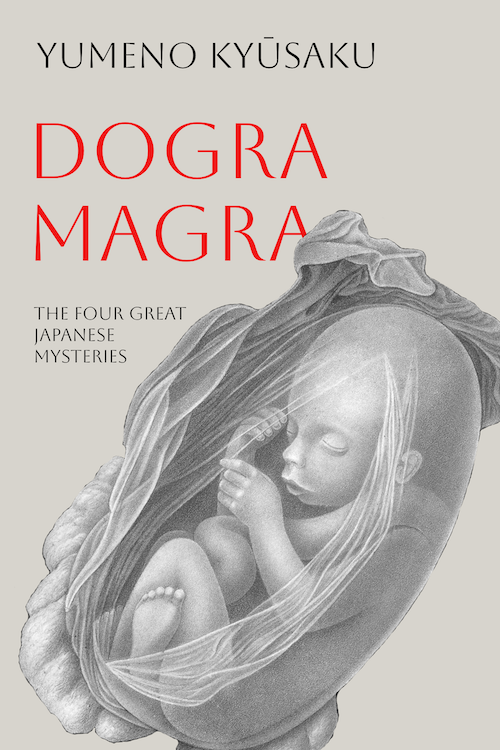I drank and drank, but couldn’t sleep. I broke the glass in library, and almost died… after reading Dogra Magra, it seems I went insane. But that means I’m still quite sensitive, which is a relief.—Seishi Yokomizo
In 1926, Western science was being embraced everywhere in Japan, and logic and rationalism seemed capable of solving not just mystery fiction’s puzzles, but all society’s ills. A certain author, however, envisioned a very different world, a world where knowledge of the mind was as powerful and destructive as any of the creations of physical science. He labored for ten years to bring that world to life, using folklore, philosophy, and the most cutting edge scientific ideas, from the embryology of Haeckel to the psychology of Freud, to produce a novel unlike any that had been written before…
What he penned was a murder mystery, told in an unconventional manner—but also a work of speculative fiction, featuring the supernatural. From one perspective, it was a reflection on family relationships—yet from another, it was a meaningless piece of prose, meant only to mock the reader’s intellect. Dogra Magra is a strange text, filled with bizzare facts and dense with science, eroticism, mysticism, and mystery. It has always had an otherwordly aura about it, an aura steeped in terror and bewilderment… an aura that makes readers question whether they themselves are only falling further into insanity…
Yumeno Kyūsaku (1889-1936) was a pen name of Yasumuchi Sugiyama, an author from Fukuoka Prefecture. His father, Shigemaru Sugiyama, was a major figure in the ultranationalist Genyosha party. As his parents divorced when he was two, Kyūsaku grew up with his grandparents, in the same house as his aunt and cousin. He spent several years on the family farm, but eventually left to wander, first as a Zen monk, then as a journalist, postmaster, Noh master, fairy tale author, and novelist. His pen name comes from a phrase in the Hakata dialect, and means “one who dreams too much.” Kyūsaku began drafting Dogra Magra in 1926, just before publishing his first short fiction for adults, but only completed it in 1935. A year later, he died of a cerebral hemorrhage while talking with a guest at his Tokyo residence, at the age of 47.

